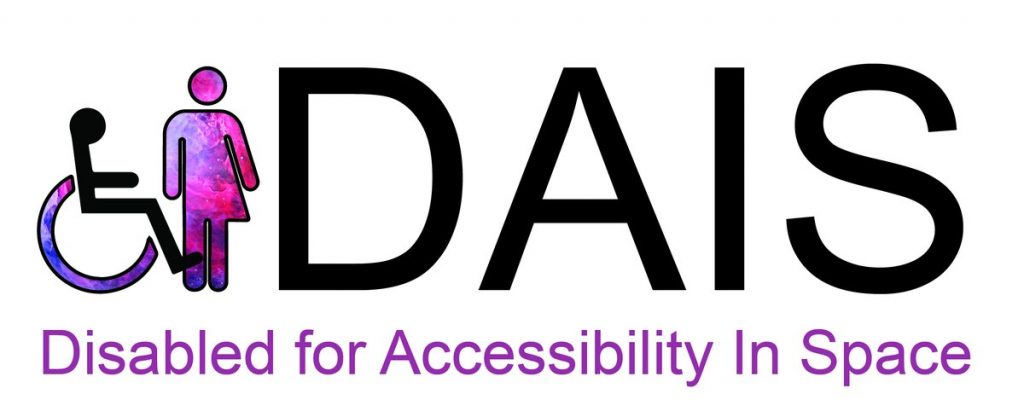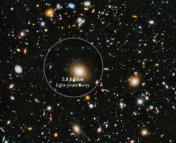This guest post was written by Dr. Jamie Molaro, Research Scientist at the Planetary Science Institute, hosted by NASA’s Jet Propulsion Laboratory at Caltech. She is also involved in the DAIS (Disabled for Accessibility In Space) network.

Do you have a disability, chronic illness, or a physical or cognitive condition that impacts your ability to function? Do you find yourself struggling to balance managing this condition while also being productive at work? Do you sometimes feel frustrated working in an institute or around colleagues that assume all people have the same physical, environmental, or scheduling needs? Many of us do!
It can be a real challenge to build and maintain a career while managing a disability or chronic condition, especially working amongst others who do not face the same challenges. Awareness of these issues has grown in recent years, and efforts devoted to making our work environments more accessible have picked up. However, many of us directly impacted are still struggling alone and there is a need for a space where we can gather.
DAIS (Disabled for Accessibility In Space) is a new peer networking, support, and advocacy group welcoming all disabled and chronically ill people who are professionally associated with space-science and related fields and professions. This is a place to be ourselves, trade advice, talk about life with a disability, offer and ask for support, share successes in our careers and lives, and meet others in the community. Our goal for this organization is to be a platform that can lift up disabled voices by first supporting each other and building on that to advocate for better accessibility throughout our respective fields. Our membership is made up of researchers, educators, engineers, and science communicators working in astronomy, planetary science, geology, and related fields. Members from all career stages are welcome, from those who are interested in entering a space field, to early career, to retired or no longer working.
You might be asking yourself if the condition you deal with is really “bad enough” to join a group like this. You might think you would be an imposter, just taking up space by calling yourself disabled when, really, your life isn’t difficult enough to “count”. Well guess what, folks — there’s space here for everyone. There’s no threshold for how much you have to suffer to deserve support and understanding. Many of our members do not specifically identify as disabled. If you have an illness or physical/cognitive condition that creates personal obstacles and impacts your ability to function at work or at home, and/or if you have a condition which limits your access to certain aspects of society without accommodations, then you belong here regardless of how you describe it. You might have been born with your condition or it might be a recent development in your life. You might be used to managing it or still navigating what it is or means for you. Either way, we hope you will join DAIS and get to know us!
We have two ways that you can engage. For day-to-day casual communication, we use a platform called Mighty Networks to share articles, questions, and respond to each other via comments. It works like a Facebook group but without the ads and privacy concerns that drive some users away. We realize folks may not want yet another platform to pay attention to, but we promise it’s easy to use and has a convenient mobile app! You can request an invitation using the link below. Scientists with disabilities and allies are also both welcome to join our (low volume) email list to hear about occasional DAIS efforts or events. We hope you’ll check us out and spread the word!
Find out more by visiting DAIS’ network page: https://spacedais.mn.co or contacting Jamie Molaro at [email protected].

